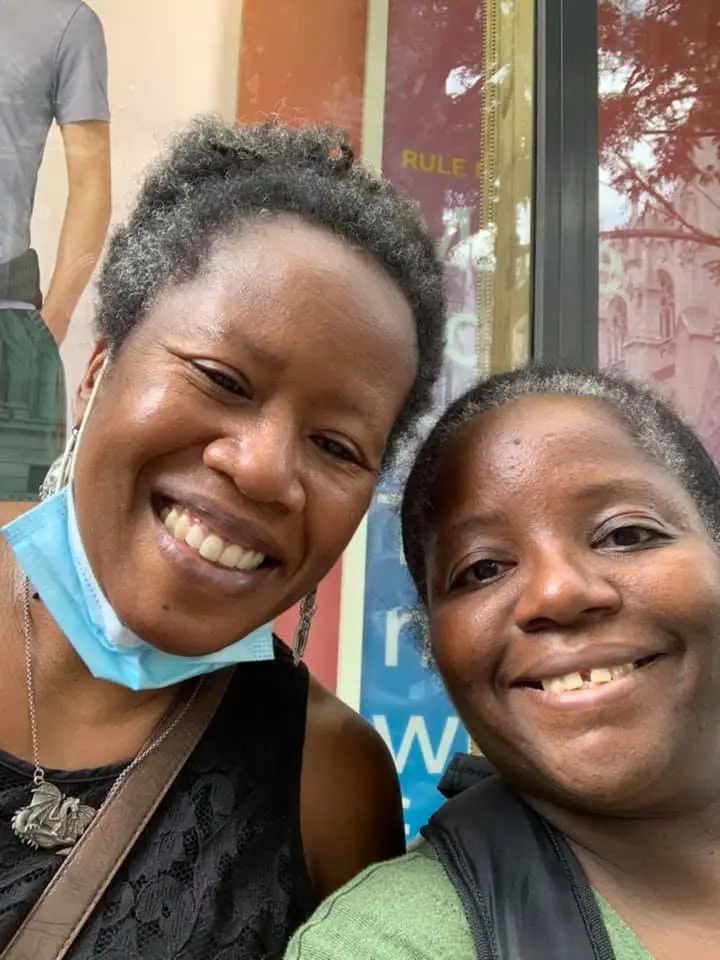Lorraine Nowlin, WDI USA Board Member, participated in an interview for the book Gender Rebels. Gender Rebels, written in Dutch, is a compilation of interviews of various thinkers on a variety of topics. The interview includes elements of the Black Women’s Statement Against Gender Ideology as well as her own perspective on the adultification of Black girls.
Bias: Black girls seen as adults too early on
Lorraine Nowlin is Christian and coordinator of the Black Women’s Caucus of Women’s Declaration International. WDI USA campaigns for sex based rights for women and girls. Nowlin is active because of hate against Black women. She loves spending time with her teenage daughters.
1. Why is it worse for Black women and girls if the right to Self Identification becomes legal?
‘Gender identity ideology is intrusive and harmful to women, and uniquely so to Black women. It reinforces harmful stereotypes of femininity and masculinity. Black women have spent decades undoing the trauma of colorism, hair texturism, and featurism. We can’t then turn around and embrace a movement that encourages self-hate and perpetuates the same standards of femininity that were often used against Black women and girls. We can’t teach our daughters the lie that we can be born in the wrong body and expect them to feel comfortable with their skin color, hair texture, or other bodily features. It is against our best interest as Black women to support gender ideology and we urge other Black women to support women’s rights, instead.
Black women are 2.5 times more likely to be murdered by men than white women. We are the demographic most in need of protection from male violence. One in four Black girls are sexually assaulted before the age of 18, and one out of five Black women are rape survivors; these numbers are higher than for any other demographic in the US. Policies that allow men unfettered access to female-designated facilities such as bathrooms, sports teams, and housing put Black women and girls, a demographic disproportionately impacted by male violence, at even higher risk.’
2. How about Black girls in sports?
‘Men overall receive a disproportionate amount of US sports scholarship funding ($1 billion yearly) compared to women, and Black women and girls make up only 9% of female student athletes. Making men who pretend to be women eligible for sports scholarships designated for women and girls further disenfranchises Black women and girls from opportunities to fund their education.’
3. What is the relation between socio-economic position, Black women, and self ID?
‘Black women experience poverty at higher rates than other groups and are especially likely to be homeless due to the inability to find affordable housing. Classifying men as women further aggravates the disparity. When we include men in female-designated housing programs, we do so at the expense of Black women.
There have already been deadly consequences where an employer ignored a Black woman’s whistleblowing regarding a male who demanded to be recognized as a woman. Monica Archer, a caseworker in a women’s shelter, warned her employers about a client, Harvey Marcelin, living as Marceline Harvey, who’d made threats against her and other shelter employees. Archer was fired for speaking out. And Harvey committed another murder on a 68-year old woman.’
4. We see white, high positioned feminists advocating for the admittance of trans women in female prison wards. Why do you think they do this? And what is your message to them?
‘As of 2021 California has imprisoned men who claim to be women in women’s prisons. Since then, there have been women who have come forward claiming to have been harassed and sexually assaulted by some of these men. Last year in California alone, over 50 male state prisoners were placed in women’s prisons. Studies have shown that even when men claim to be women, they display a typically male pattern of criminality with respect to violent crimes. Additionally, 49.7% have been convicted of sex crimes.
Therefore, incarcerated women are forced to be housed with male criminals of whom half have a history of sexual violence. Since Black women are seven times more likely than White women – and more than twice as likely as Hispanic women – to be incarcerated during their lives, these inhumane conditions of incarceration disproportionately and unfairly affect a marginalized and especially vulnerable group of Black women. Living in terror of being raped and actually being raped while incarcerated amounts to torture at the hands of the state.’
5. How can we work towards a feminism that fights for Black girls and women as well?
‘First and foremost, the onus is on Black women to acknowledge that women’s issues impact our demographic just as much as it does White women. We are doing ourselves a disservice by ignoring women’s issues and prioritizing race over sex. It is not, nor has it ever been, solely about Blackness for us. I must add that women’s issues should not even be secondary to race issues. Black women don’t have the luxury of ignoring reproductive rights, hate and violence against us specifically, or overall health and economic issues. This also requires a willingness on the part of White women to listen to and work with Black women.
A major problem for Black girls is the issue of adultification bias. The Center On Gender Justice and Opportunity at Georgetown Law examined how Black girls are viewed as “less innocent and less deserving of protection.” This leads to harsher penalties for minor behavior challenges and, eventually, to a loss of learning. The story of Lanyiah Green is one example of adultification bias. Beginning in the third grade, she was suspended for chewing gum, rolling her eyes, or simply being curious. She was eventually not allowed back into a traditional school setting and receives individual instruction once per week. Unfortunately, this is not an isolated problem. In order to help Black girls, feminists must acknowledge that this, too, is a feminist issue.
Black women will have to make some adjustments as well. We lack power in the US and globally. We need alliances with other women and must be careful not to alienate them unnecessarily. If a White woman expresses discomfort with a man who happens to be Black, we should not allow knee-jerk reactions to brand her as a racist. Calling her a racist is basically guilting her into ignoring instincts that might ensure her safety. The constant second-guessing could cause us to lose much-needed allies in the fight for Black women and girls. To sum it up, fighting and winning for Black women and girls requires mutual openness from White and Black women.’







